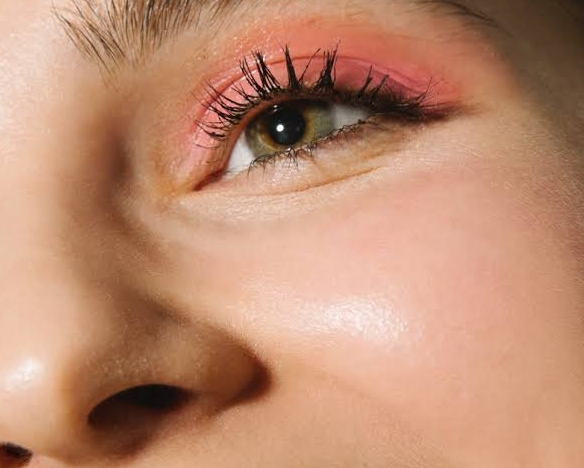No doubt, a glowing skin gives self-confidence and it’s what many people like to achieve.
Cleansers, face creams, lotions, moisturizers, serums etc. are some of the many skincare products that can give the skin a healthy-looking glow.
These products have the ability to enhance the appearance of your skin. However, it’s also possible to get glowing skin without having to apply a single one of these products.
The secret to achieving healthy-looking skin naturally is practicing healthy behaviors that nourish both your skin and body.
In a world where appearances hold significant weight, having clear and glowing skin can do wonders for one’s confidence.
DAILY GIST in this article, has highlighted ways to improve your skin’s appearance without using skincare products.
1. Drink Lots Of Water
Drinking water can keep your skin moist and combat dryness and flaking. It may also help your skin maintain its elasticity and plumpness. This can reduce or delay signs of aging like fine lines and wrinkles.
Another benefit of drinking lots of water is that it helps flush toxins and waste out of your body. A buildup of toxins and waste can often contribute to acne and dull-looking skin.
2. Regular Exercise
Exercise increases your blood flow and circulation. This allows your skin cells to receive a higher amount of oxygen and nutrients that contribute to a glowing skin tone.
Like water, exercise also helps flush waste and toxins out of your body that can make your skin look tired and dull.
3. Increase Fruits and Vegetables In Your Diet
Fruits and vegetables are loaded with antioxidants and other nutrients that can fight free radicals causing acne and other skin problems.
Some fruits and veggies are also high in water content, which can hydrate your skin and make it look plumper.
Watermelon, grapes, and celery are examples of fruits and veggies that contain lots of water
4. Increase Your Fiber Intake
Fiber can help move waste out of your body, which helps you maintain healthy-looking skin. It also increases blood flow and circulation so your skin cells can receive more nutrients.
Fortunately, most fruits and vegetables contain high amounts of fiber.
Apples, beans, and pears are some of the many healthy foods that are high in fiber.
5. Get Quality Sleep
Sleep is your body’s time to repair itself, and this includes your skin. While you sleep, your skin will turn over dead skin cells and create new, healthy skin cells.
Your skin will also produce new collagen while you sleep, which helps the skin stay plump.
More collagen means fewer fine lines and wrinkles and less sagging
6. Use a Silk-Like Pillowcase
Some fabrics have the potential to dry out and dehydrate your skin. For instance, cotton is highly absorbent and can strip the natural oils out of your skin.
These oils, plus your dead skin cells, will stay trapped in your pillowcase until you wash it again.
This increases your risk for acne and a dull-looking skin tone.
7. Manage Stress
Stress causes your body to release higher amounts of a stress hormone called cortisol.
Cortisol increases oil production in your skin, which can lead to clogged pores and acne. Cortisol also increases inflammation in your body.
According to a 2014 study published in Inflammation and Allergy Drug Targets, stress-induced inflammation can lead to skin conditions like eczema and psoriasis.
Find ways to effectively manage and reduce stress.
8. Don’t Stay Inside The Sun For So Long
Spending time in the sun may seem like an effective way to get a healthy-looking glow. Sunlight does offer health benefits for your body and skin—but only if you’re in it for a short period.
Too much sun can lead to sunburn and exposes you to radiation that increases your risk for skin cancer.
Excess sun also contributes to wrinkles, discoloration, and other signs of aging
9. Refrain From Touching Your Face
Hands and fingers usually contain high amounts of oil and dirt, even if you recently washed them.
When you touch your face, this debris will transfer from your fingers to the skin and clog pores, increasing the risk for acne.
Try to avoid touching your face with your fingers and the palms of your hands at all costs.
10. Shower Using Warm Water
Consider bathing with lukewarm after a long day or when you feel like relaxing.
Lukewarm water is far less harsh on your skin and won’t leave it as dry or dehydrated.
Additionally, use gentle soaps on your skin that won’t lead to irritation or breakouts. Avoid harsh soaps that contain perfumes and harmful toxins like dyes that can further damage your skin and increase signs of aging.
11. Reduce Or Stop Alcohol Intake
Alcohol dehydrates your skin and body. It can make fine lines and wrinkles more pronounced and leave your skin looking gray and dull.
Drinking high amounts of alcohol regularly can also lead to nutritional deficiencies. This can prevent your skin from getting the nutrients it needs to maintain a healthy-looking glow.
For instance, alcohol can deplete your body’s levels of several B vitamins, including folic acid. Folic acid helps your skin retain moisture
12. Use Separate Towels For Face & Body
Refrain from using your body towel on your face, as it can harbor bacteria and oils.
Instead, use a dedicated towel for your face to maintain its cleanliness and sensitivity.
By incorporating these habits into your daily routine, you can achieve glowing skin naturally, enhancing not only your appearance but also your overall body health.









